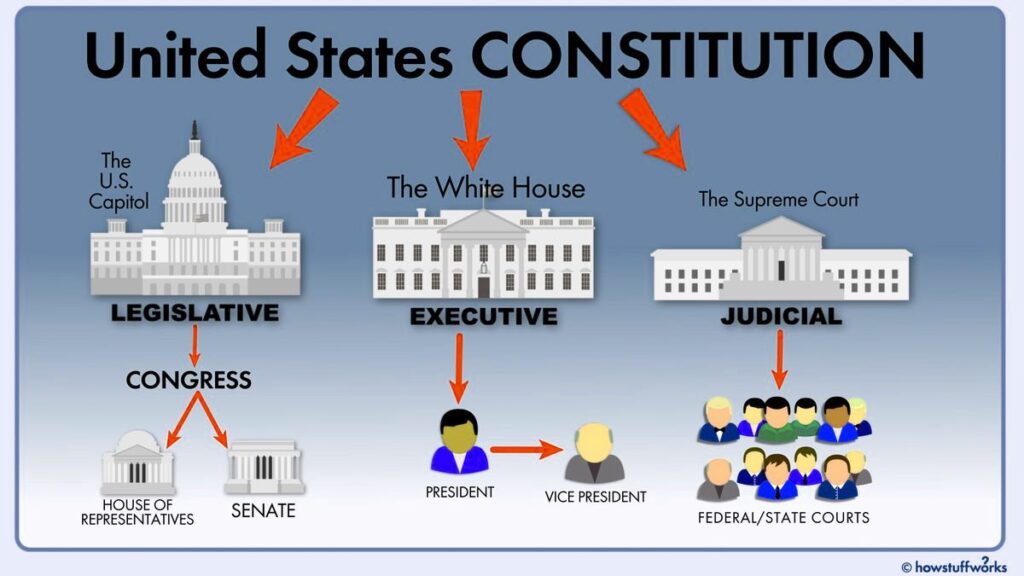TL;DR: Trump’s Pardon and Its Impact on the Crypto World
- Trump’s administration has significantly influenced federal policies affecting various sectors, including cryptocurrency.
- The revocation of security clearances has raised concerns about intelligence access and political accountability.
- Economic implications of penny production costs highlight inefficiencies in government spending.
- Kamala Harris has criticized Trump’s actions, particularly regarding civil rights and law enforcement.
- Calls for auditing and shutting down USAID reflect a growing demand for government accountability.
The Obliteration of Iran’s Nuclear Facilities
The obliteration of Iran’s nuclear facilities marks a significant turning point in international relations and military strategy. This decisive action underscores the ongoing tensions between the United States and Iran, particularly in the context of nuclear proliferation. The destruction of these facilities not only aims to curb Iran’s potential nuclear capabilities but also serves as a message to other nations regarding the consequences of pursuing similar paths.
The implications of this military action extend beyond immediate geopolitical concerns. It raises questions about the efficacy of military interventions in achieving long-term peace and stability in the region. Critics argue that such actions could escalate tensions further, potentially leading to retaliatory measures from Iran or its allies.
Moreover, the obliteration of these facilities has economic ramifications. The costs associated with military operations are substantial, and the long-term financial impacts on both the U.S. and Iranian economies will likely be scrutinized in the coming years. As the U.S. government continues to navigate its foreign policy strategies, the outcomes of this operation will be pivotal in shaping future engagements with Iran and other nations.
Trump’s Revocation of Security Clearances
In a controversial move, former President Trump ordered the revocation of security clearances for several former and current federal and state officials. This decision has sparked significant debate regarding its implications for national security and political accountability.
Impact on Joe Biden’s Intelligence Briefings
The revocation of Joe Biden’s security clearance and the cessation of his daily intelligence briefings have raised alarms about the transition of power and the continuity of national security. Intelligence briefings are crucial for incoming presidents to understand ongoing threats and challenges. By denying Biden access to this information, Trump has set a precedent that could undermine the integrity of future transitions.
Critics argue that this action could jeopardize national security by limiting the incoming administration’s ability to respond effectively to emerging threats. The intelligence community’s role in providing timely and accurate information is vital for informed decision-making, and any disruption in this process could have far-reaching consequences.
Security Clearance Changes for Federal Officials
The changes in security clearance protocols for federal officials have also raised concerns about the politicization of intelligence. By revoking clearances based on political affiliations rather than security assessments, the integrity of the intelligence community may be compromised. This shift could deter qualified individuals from serving in government roles, fearing potential repercussions based on their political beliefs.
Furthermore, this practice could lead to a chilling effect on whistleblowers and those who might expose wrongdoing within the government. The balance between national security and political accountability is delicate, and any missteps in this area could erode public trust in government institutions.
Economic Implications of Penny Production Costs
The economic implications of penny production costs have become a focal point in discussions about government efficiency and fiscal responsibility. In Fiscal Year 2024, the cost of producing a single penny was nearly 3.7 cents, raising questions about the viability of continuing penny production.
The inefficiency of penny production highlights broader issues within government spending. Critics argue that maintaining a currency denomination that costs more to produce than its face value is a clear indicator of wasteful spending. This situation prompts calls for a reevaluation of currency policies and a potential shift towards eliminating the penny altogether.
Moreover, the financial burden of penny production extends beyond mere manufacturing costs. It encompasses the broader economic implications of maintaining a currency that may no longer serve a practical purpose in modern transactions. As digital payments become increasingly prevalent, the relevance of physical currency, particularly lower denominations like the penny, is being questioned.
The debate surrounding penny production costs reflects a larger conversation about government efficiency and fiscal responsibility. As policymakers grapple with budget constraints and the need for effective resource allocation, the future of the penny remains uncertain.
Kamala Harris’s Critique of Trump’s Actions
Vice President Kamala Harris has been vocal in her critique of Trump’s actions during his presidency, particularly regarding civil rights and law enforcement policies. Harris’s stance reflects a broader concern among many Democrats about the implications of Trump’s policies on marginalized communities.
One of the key areas of criticism has been Trump’s handling of protests and civil unrest. Harris has condemned the use of tear gas against protesters, arguing that such actions undermine the right to peaceful assembly and expression. This critique is particularly relevant in the context of the Black Lives Matter movement and calls for police reform.
Harris’s critiques extend beyond specific incidents to encompass a broader narrative about the need for equitable policies that address systemic injustices. Her position emphasizes the importance of accountability and transparency in government actions, particularly in relation to law enforcement practices.
As the Biden administration continues to navigate the complexities of governance, Harris’s critiques serve as a reminder of the ongoing challenges in addressing civil rights issues and the need for comprehensive reforms.
Federal Control Over Utah
Federal control over Utah remains a contentious issue, with significant implications for state governance and local autonomy. Approximately two-thirds of Utah’s land is federally controlled, leading to ongoing debates about the balance of power between state and federal authorities.
This federal oversight has sparked discussions about the rights of states to manage their resources and land use. Proponents of state control argue that local governments are better equipped to address the unique needs of their communities, while opponents contend that federal oversight is necessary for environmental protection and resource management.
Legislation such as Utah House Bill 267, which seeks to ban union monopoly bargaining over government workers, reflects the state’s push for greater autonomy. This bill highlights the ongoing tension between state and federal interests, particularly in areas related to labor rights and government employment.
As discussions about federal control continue, the implications for Utah’s governance and the rights of its residents will remain at the forefront of political discourse.
The Call to Audit and Shut Down USAID
The call to audit and potentially shut down the United States Agency for International Development (USAID) has gained traction among certain political factions. Critics argue that the agency has been ineffective in its mission and that taxpayer dollars are not being utilized efficiently.
Prominent voices, including Congressman Lee Zeldin, have expressed concerns about the lack of oversight and accountability within USAID. Zeldin has highlighted instances where funds have been mismanaged or allocated without sufficient scrutiny, raising questions about the agency’s overall effectiveness.
“The grants raise significant concerns and pose unacceptable risk.”
Zeldin
The push for an audit reflects a growing demand for transparency in government spending and a reevaluation of foreign aid policies. Advocates for reform argue that a thorough audit could uncover inefficiencies and lead to more effective allocation of resources.
The potential shutdown of USAID would have significant implications for U.S. foreign policy and humanitarian efforts. As the debate continues, the future of the agency remains uncertain, with advocates on both sides presenting compelling arguments for reform.
The Role of Federal Government in State Affairs
The role of the federal government in state affairs has been a subject of ongoing debate, particularly in the context of states’ rights and local governance. The balance of power between federal and state authorities is a foundational aspect of the American political system, and tensions often arise over issues such as land use, education, and healthcare.
Federal intervention in state affairs can be seen as both a necessary safeguard and an overreach of authority. Proponents of federal oversight argue that it is essential for ensuring civil rights and protecting vulnerable populations, while critics contend that it undermines the autonomy of state governments.
The complexities of this relationship are evident in various policy areas, including education and healthcare. Federal mandates often require states to comply with specific standards, leading to debates about the appropriateness of such interventions.
As states navigate their relationships with the federal government, the ongoing discussions about the role of federal authority will continue to shape the landscape of American governance.
Public Response to Trump’s Policies
Public response to Trump’s policies has been polarized, reflecting the deep divisions within American society. Supporters of Trump often praise his administration’s focus on deregulation, tax cuts, and a strong national defense, while critics highlight concerns about civil rights, environmental protections, and international relations.
The response to specific policies, such as immigration reform and healthcare changes, has sparked widespread protests and advocacy efforts. Grassroots movements have emerged in response to perceived injustices, with activists calling for accountability and reform.
“What truly matters is not which party controls our government, but whether our government is controlled by the people.”
Cockatoo (Speaker 15)
The public’s engagement with political issues has intensified, with many citizens becoming more active in advocating for their beliefs. Social media platforms have played a crucial role in mobilizing support and disseminating information, allowing for greater participation in the democratic process.
As the nation moves forward, the public’s response to Trump’s policies will continue to shape the political landscape, influencing future elections and policy decisions.
Navigating the Complex Landscape of Modern Governance
The Impact of Economic Policies on National Stability
Economic policies play a crucial role in shaping national stability. The decisions made by government officials regarding taxation, spending, and regulation have far-reaching consequences for citizens and businesses alike. As the economy continues to evolve, the need for effective and equitable policies becomes increasingly important.
Security Clearances and Political Accountability
The management of security clearances is a vital aspect of maintaining political accountability. Ensuring that individuals in positions of power have the necessary clearances to access sensitive information is essential for national security. However, the politicization of this process can undermine public trust in government institutions.
The Role of Media in Shaping Public Perception
Media plays a significant role in shaping public perception of government actions and policies. The narratives constructed by news outlets can influence public opinion and drive political engagement. As the media landscape continues to evolve, the responsibility of journalists to provide accurate and unbiased reporting remains paramount.
Union Dynamics in Government Employment
Union dynamics within government employment are critical to understanding labor relations and workers’ rights. The ongoing debates about union representation and collective bargaining reflect broader societal issues related to economic inequality and workers’ rights. As states navigate these challenges, the role of unions will continue to be a focal point in discussions about labor policy.
The Future of International Relations Amidst Tensions
The future of international relations is fraught with challenges, particularly as tensions between nations escalate. The actions taken by governments in response to global issues will shape the geopolitical landscape for years to come. As nations grapple with complex challenges, the need for diplomacy and cooperation becomes increasingly vital.
In conclusion, the impact of Trump’s policies on various sectors, including the economy, security, and international relations, will continue to be felt in the years to come. As the nation navigates these complexities, the importance of accountability, transparency, and effective governance remains paramount.

